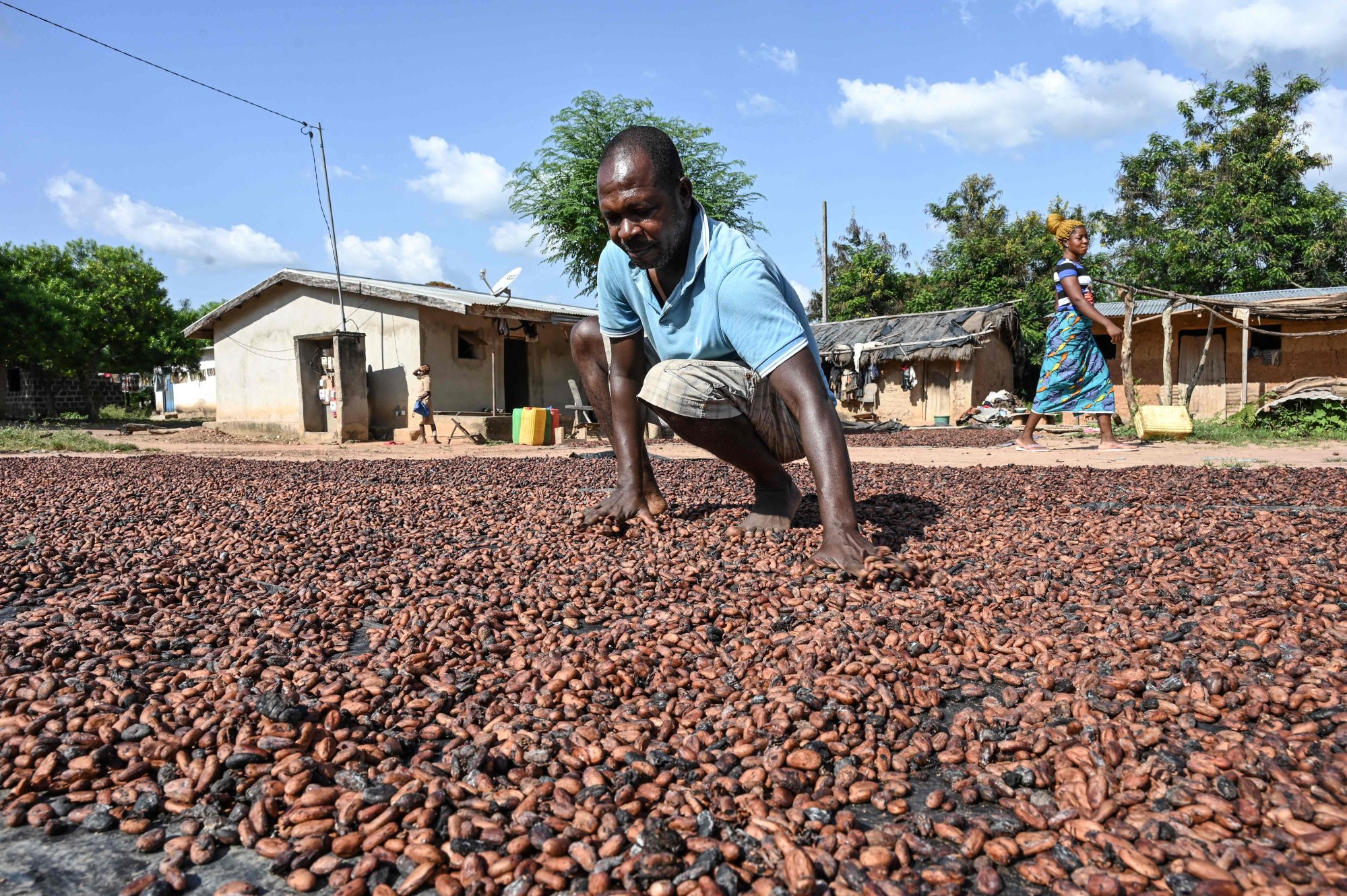
Chinese-backed Asian Infrastructure Investment Bank seeks to boost Ivory Coast’s trade links to Asia with road upgrade scheme
- The project to upgrade 7,000km of roads will help link the agricultural north of the country with major export hubs, including the port of Abidjan
- Officials at the investment bank say it is looking to ‘expand collaboration in Africa’ with projects in more countries in the pipeline
The region is a major producer of cotton and cashew nuts but the poor quality of the roads means that it is difficult to transport the goods to major processing centres and trade hubs, including the country’s largest city, the coastal port of Abidjan.
The US$571 million project will see improvements to 7,000km (4,350 miles) of unpaved roads in 11 regions and will also help maintain a further 15,000km of rural roads. The AIIB is advancing US$200 million while the World Bank will contribute US$300 million, with the rest coming from the Ivorian government.
A major road benefiting from the funding is the 238km Dianra-Bouandougou-Bouaké route, which is seen as crucial for opening up the Béré region – the main agricultural production area of the 11 regions – and for connecting northern Ivory Coast to the town of Bouaké.
Bouaké is the second most significant agricultural processing and consumption centre in the country and is located on the main road to Abidjan, home to the country’s largest trading port.
Suzanne Shaw, an infrastructure sector economist at the AIIB, said the project would help make transporting agricultural goods to export hubs more efficient and cost effective, potentially boosting trade with Asian markets.
Ivory Coast and Ghana throw down gauntlet on cocoa price
She said the new infrastructure would also help improve agribusiness supply chains and storage facilities.
Agriculture accounts for around 20 per cent of Ivorian GDP, while cotton and cashew nuts account for up to 60 per cent of the country’s exports to Asia, according to the AIIB. On average, 98 per cent of raw cashew exports and 87 per cent of cotton exports are destined for Asian markets, based on 2015- 2020 data.
In 2021, the country was the world’s largest exporter of cocoa, and is also one of the world’s largest producers and exporters of raw cashews. It is also a major exporter of other agricultural products such as rubber, palm oil and bananas.
Shaw said the AIIB funded two types of projects in non-regional members and non-Asian countries; the first are connectivity projects that boost links to Asia, such as the Ivory Coast road scheme.
“Usually this is through facilitating trade, you can think of infrastructure related to trade – from ports, airports, logistics hubs but also transport corridors which will lead to these hubs and open up the country to more trade opportunities,” Shaw said in an interview on the sidelines of the AIIB’s annual meeting in Sharm el-Sheikh, Egypt last week.

The bank has promised to allocate more than half of its financing to climate-related projects in line with the 2015 Paris Agreement.
China holds a 30 per cent stake in the AIIB, a brain child of President Xi Jinping, which started operating in 2016 and was billed as Asia’s answer to the World Bank in providing infrastructure finance to its members. Cumulatively, it has financed more than 200 projects worth US$44 billion, mostly in Asia.
It has 13 full African members and eight prospective members from the continent.
“We are looking to expand our collaboration in Africa. We are also expanding our membership actively,” Shaw said. “We don’t single-handedly determine what projects we will invest in or which countries we will go to. We are driven by the demand of our members.”
Ivory Coast formally opens huge China-funded dam
Apart from the Ivory Coast, it has also funded projects in Rwanda and Egypt, all major Chinese trading partners, and Shaw said projects in other countries – including Benin and Madagascar – were in the pipeline.
The main African recipient of its funding is Egypt, which has received US$1.3 billion in infrastructure investments.
“Our bank is keen to engage more deeply with African members to achieve their climate mitigation and resilience goals,” said Konstantin Limitovskiy, the AIIB’s vice-president of investment operations.
He also said the cooperation in Africa was “in its nascent stages” and the bank would explore new opportunities to expand connectivity and resilience.

